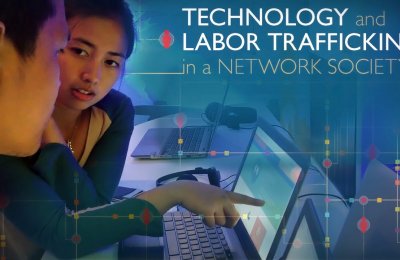This article originally appeared on the Media, Economics & Entrepreneurship website
Lian Jian is an assistant professor in the School of Communication. But she started her career as an electrical engineer after earning a Master’s degree from Nanyang Technological University. That led her to an early career with Panasonic, in Singapore, where she worked on advanced cellular technology. Today, however, Jian’s focus is entirely different: She applies an interdisciplinary approach to understand the market potential of information and the Internet. She shared her insights on the power of the crowd both to provide wisdom and funding in next era of information.
Let’s start with a bit about your background. What exactly is economics of information?
The economics of information is a broad area. A lot of the early work went into how to price magazines, how to price the Internet, how to price software. How do you bundle music—all these things. I focus on behaviors of markets and behaviors of individuals when they transact with one another on the Internet. My work really focuses on how the Internet, as a new medium, has changed how we do things, particularly because people can now do things that were fairly hard to do before. For example, through crowd sourcing you can mobilize a huge number of people to get things done—pretty incredible things done in a short period of time. How these things happen and how we can make this system better to make individuals interact with each other on this platform is primarily what I work on.
You have written about an idea called “collective intelligence.” Is this the same as crowd sourcing?
Crowd sourcing, broadly defined, is when you have to get something done and then you call the crowd to get it done. Collective intelligence, you could say, is part of that, but instead of saying get something done, collective intelligence focuses on getting knowledge. How to aggregate the crowd’s ideas. One of the examples of crowd sourcing collective intelligence is predictive markets. The purpose of these markets is to aggregate people’s private knowledge to predict something. One example is Intrade.com, which is basically a betting market where you can wager whether President Obama will win the election, or whether new gun control laws are coming, the whole nine yards. These markets turned out to be highly accurate at predicting outcomes. So that’s one area I work on—how to use market incentives to get the best information out of the crowd so that businesses can make decisions based on these predictions before the event even happens.
Do you think these new information tools compete with or complement journalism?
I think this complements the opinion polls that are frequently used. Of course, journalists still have to dig around for the facts. This just aggregates people’s opinions, which is sort of a better way to do opinion polls. I don’t think it will really compete with what journalists do and if journalists know how to utilize this information it might actually help them or even enrich their reporting. I don’t think they can put their head in the sand and ignore it. Like it or not, it’s happening. I feel like they have to face it and the more active you are about facing this, the better the outcome.
Are there any new models of news that you think have potential?
I did a paper on crowd-funded journalism, with my co-author, Nikki Usher. There is a website called Spot.us, and basically you can be anybody and you say, “I want to write a report on this issue.” So you propose a topic and people donate money to you. About half or more is donated in five or ten dollar increments, so it is really crowd funding. Then the reporter goes and writes the article and publishes on Spot.us. So of course this is a very small experimental project. I don’t think we expect this model to replace the existing news model, but I think it could be a healthy component. What’s interesting about it is if you want the crowd to donate money to you, people usually don’t like to donate to straight political news—the town hall meeting or the budget debate. They are much more interested in something that is close to their immediate life, like public health concerns. I think Spot.us is really good for that kind of reporting. As an alternative model it is not quite in the mainstream yet, but it does occupy a unique space in the future of news and they have been pretty successful.
Has anything you have found in your research been surprising?
In my area, what has really surprised me is the crowd can actually do really good work. The crowd can produce such a big project like Wikipedia, for example. The quality is pretty good, especially when you go into natural science and things like that. So I thought that was a small miracle. There is a lot of potential in the crowd that could be utilized. The question is how smart you are to tap into that talent. In terms of news, I don’t know. I think it is still a big question mark. I guess we will see.
Original Q-and-A
Media, Economics & Entrepreneurship
More on Professor Lian Jian









